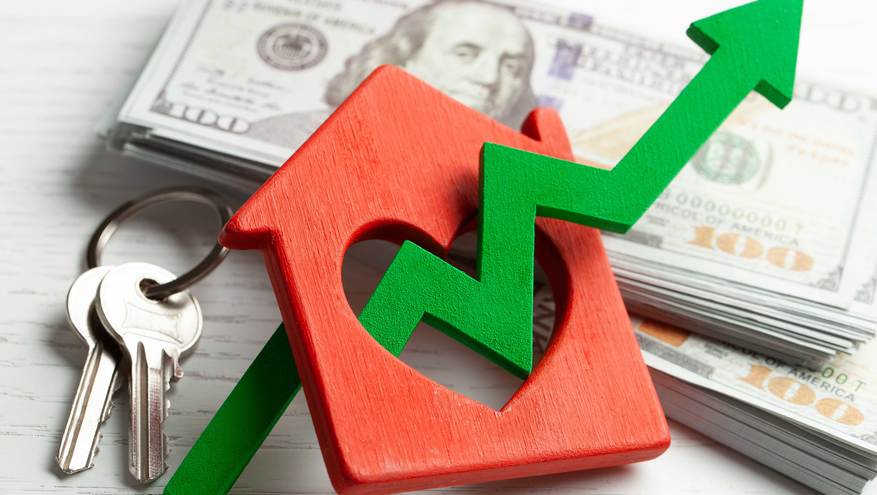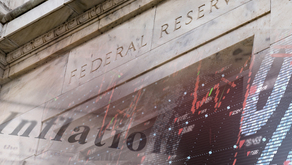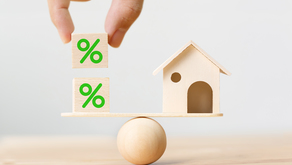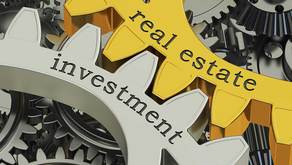Does filling up your gas tank make you cringe? Does buying a bag of chips at the grocery store give you sticker shock? Does shopping for your children’s winter coats make you shudder? Most everything is more expensive right now, and most everyone is having to find ways to stretch their money a bit further.
But why are prices so high?
For one, COVID-19 threw the supply chain off course. Many of the items you and others want or need are stuck in transit. So, supplies are low, demand is up and, as a result, prices are high. That —among other factors — has caused the inflation rate to climb higher than it’s been in three decades.
Meanwhile, mortgage interest rates are at a historic low. Yes, that seems like a sudden shift to a different topic, but there’s an important relationship between inflation rates and interest rates — one that homeowners and homebuyers will want to pay close attention to over the next several months. To understand that relationship, we’ll have to dive a little deeper into some economics.
What is Inflation and Inflation Rate?
Inflation is an economics term for when prices rise for multiple items, such as groceries and gas. It reduces the value of a dollar, meaning that, as those prices rise, your money buys less. Inflation rate is the percentage increase or decrease in prices during a specified period of time.
Here’s a quick example of inflation and inflation rate:
Let’s just say the inflation rate for your favorite party-sized bag of chips is 2% per year. That means your chips will be 2% higher next year. So, if the chips cost $4.50 this year, they will cost $4.59 next year. That may not seem like a huge jump, but keep in mind, inflation is when prices for multiple items rise. So, you’re not just paying more for chips, you’re paying more for other items, too, and that can put a strain on your budget.
Now, let’s switch to interest.
What is Interest?
When you think of interest rates, you probably think of the interest rates you pay on your home loans or credit cards, for example, and understand it to be an extra amount you pay in order to borrow money. You wouldn’t be wrong, but it’s important to understand how the Federal Reserve thinks of interest.
As America’s central bank, the Federal Reserve also defines interest as the cost of borrowing money, but thinks about it differently than we do. The Federal Reserve uses and adjusts the interest rate to spur the economy or combat inflation. The Federal Reserve does not set mortgage interest rates. The Federal Reserve’s interest rate does not directly affect mortgage interest rates; however, they usually move in the same direction. Right now, the Federal Reserve’s interest rate is hovering between 0 and 0.25 percent. As a result, mortgage interest rates are low — historically low.
A Tip to Understand the Relationship Between Inflation and Interest
That’s a lot of economic information. It’s important to understand though, especially now, with the inflation rate at a record high, because here’s a tip: If interest rates remain low, it’s a good indication that the Federal Reserve sees the higher inflation rate as temporary.
Typically, when inflation rates are high and are expected to stay high, the Federal Reserve will raise rates to discourage consumers from spending. That reduces the supply of money in circulation, which in theory should lower the inflation rate.
While it’s difficult to predict what the Federal Reserve will do in the coming months, you can use this information and consider ways to take advantage of what’s happening (or could happen) with the economy and interest rates.
4 Questions to Ask Yourself Right Now
- Should I buy a home?
- Should I refinance my home?
- Should I pay off my mortgage?
- Is there a way to access the equity in my home?
The short answers are:
- Yes (if you’re in the market to do so).
- Yes.
- It depends.
- Yes.
The long answers are:
- As mentioned earlier, the Federal Reserve’s interest rate is still low. That means mortgage rates are still low. If you’re planning to buy a home in the near future, start searching now so you can take advantage of the low interest rate environment. With that said, buying a home is one of the biggest decisions you will ever make, and it will affect your budget for years to come. Be sure you’re truly ready financially and that you aren’t just jumping in because of the economy.
- If you haven’t refinanced your home in a while, now is the time, so you can lock in a lower, fixed-interest rate. You'll need to have good credit to qualify, but if you do, you could save a lot of money on interest fees, which could positively impact your budget. The money you save could help you balance other parts of your budget that inflation is negatively affecting.
- If you’re thinking about paying off your mortgage, the advice varies. If it’s your financial goal and something you’ve worked hard to do, then yes, absolutely do it. But if your mortgage is locked in at today’s low interest rates and you have debt that’s charging you high interest rates, such as a credit card or student loan, you should think about paying those debts off before your mortgage. Because again, you have the advantage of a low interest rate on your home. Take the money you’re saving from that and pay down your other balances.
- Home values have soared in Utah recently, so if you already own a home, you potentially have experienced a surge in your equity. If you need or want to, you can tap into that equity by taking out a Home Equity Line of Credit. Also known as a HELOC, it allows you to borrow money against your home to pay for renovations, consolidate debt, pay medical bills, help with short-term expenses or even take a dream vacation. As always, proceed thoughtfully when borrowing against your home. Make sure any decision aligns with your financial goals.
Some Final Thoughts
Inflation, inflation rates, interest rates, mortgage rates — it’s a lot to take in, and a lot to think about, especially if you’re a potential homebuyer or current homeowner. This is where a trusted mortgage loan officer can help you.
If you have any questions about the current interest rate landscape and how you can take advantage of it, please contact us. We’ll schedule a time to sit down and have a full conversation, one where we talk about your financial goals. Again, we can’t exactly predict what rates will be in the future, but we can help you plan for the future, one where your home fits perfectly into your overall financial picture.




